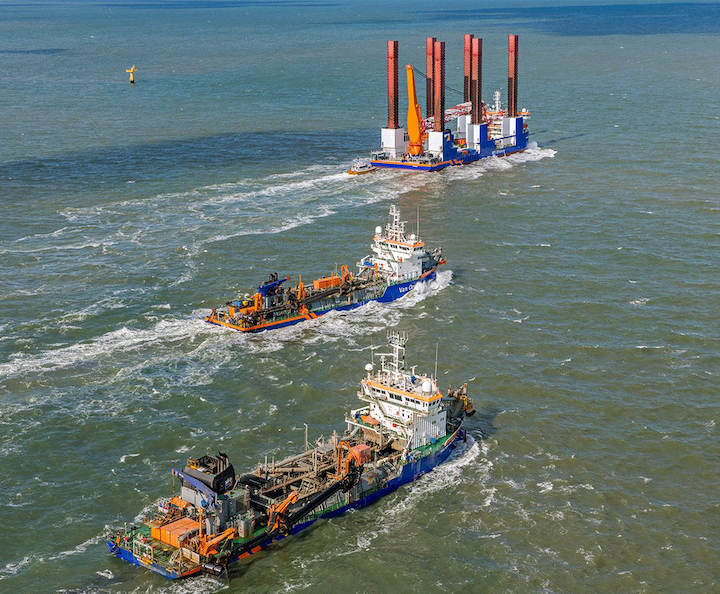Dutch dredging company Van Oord has signed a three-year agreement with ABB Turbocharging to provide fleetwide maintenance and optimization services. The agreement comes as two Van Oord vessels receive the first turbocharger upgrades of their kind in the dredger sector, saving thousands of tons in fuel and carbon emissions over the next decade.

“With fleet renewal underway and the IMO 2030 target approaching, we are jointly searching for continuous improvements in sustainability,” said Jorn Bertens, Category Manager Ship Management, Van Oord.
Andre Kreemer, Responsible Fleet Manager, Van Oord, added: “Technical support is more important than ever as we introduce new engine technologies to our fleet, and we are pleased to extend this cooperation with a trusted partner.”
Ron Vlasblom, General Manager Turbocharging Benelux, ABB Turbocharging said: “Turbocharger maintenance and upgrades play an important role in keeping vessels operating at optimal efficiency. Multi-year agreements give extra certainty and a long view that you cannot get when working on an ad hoc basis. This is the third such agreement we have signed with Van Oord and we are delighted to have earned their trust over our many years of working together.”
Van Oord’s largest trailing suction hopper dredging vessel was the first dredger to receive an upgrade to ABB’s TPL-A turbochargers. A similar upgrade will be performed on a second large dredger. The two upgrades are projected to save thousands of tons in fuel and carbon emissions over the next decade.
The TPL turbocharger component upgrade consists of improvements to several key components, including new compressor wheel and diffusor designs, improved turbine and nozzle ring, and optimized low friction bearings. As well as significant fuel savings, the reduction in exhaust gas temperatures also improves reliability, resulting in lower maintenance costs and downtime.









